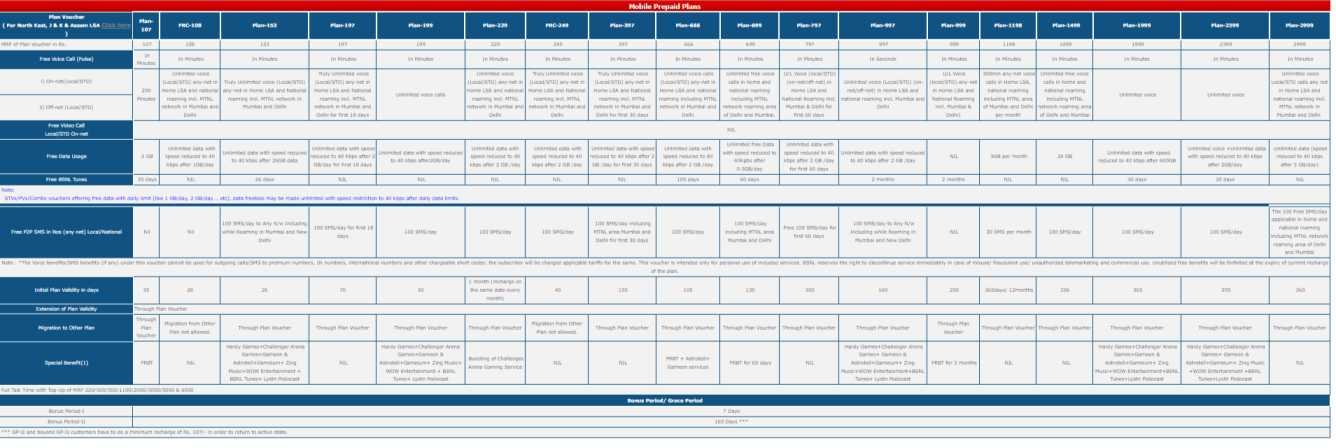Challenges and Hopes for BSNL Amid Private Telecom Tariff Hikes. The telecom industry in India is undergoing significant changes, with private telecom companies raising their recharge plans by up to ₹25. This move has placed an additional financial burden on consumers. Starting from July 3, major players like Jio and Airtel have implemented these hikes, leaving many customers distressed. In this challenging scenario, the public is turning to Bharat Sanchar Nigam Limited )with a sense of hope and expectation.
BSNL Employees Union’s Concerns
- On Tuesday, the BSNL Employees Union raised alarms about the company’s inability to compete with private sector telecom operators due to the absence of 4G and 5G services.
- The union stated that without these advanced network services, this is at a significant disadvantage, which allows private companies to increase tariffs without facing competition.
- In a letter to Union Communications Minister Jyotiraditya Scindia, the union highlighted that the recent tariff hikes by private operators, such as Reliance Jio, are unjustified. This stance is especially relevant considering that these private companies are already highly profitable.

Impact of Competition and Technological Delays
- Previously, competition from BSNL prevented private telecom companies from acting arbitrarily. However, the scenario has shifted dramatically. The company has struggled to launch its 4G and 5G services, which hampers its ability to compete with private operators and control arbitrary tariff increases. For instance, Jio raised its tariffs after nearly two and a half years, and Airtel followed suit.
- The union’s letter also pointed out the absence of portals like airtelgprs.com, which has caused to loss of customers to private operators.
- Moreover, the decision to restrict BSNL from upgrading to 4G BTS and preventing it from purchasing 4G equipment from global vendors has resulted in substantial losses for the company.
- The halt in purchasing Nokia equipment and the mandate to buy only from indigenous manufacturers have further delayed the launch of It’s 4G and 5G services.
Promises and Delays
- The union recalled that former Telecom Minister Ashwini Vaishnaw had announced in May 2023 that BSNL would launch its 4G service within a few weeks and upgrade to 5G by December.
- However, as of now, BSNL has not been able to roll out its 4G services, let alone 5G.
- This delay has further strained it’s position in the highly competitive telecom market. The gap in service delivery not only affects the company’s revenue but also erodes consumer confidence.
Current Challenges of BSNL
- BSNL is currently facing two major challenges. Firstly, the company needs to increase its market share, which stands at 7.46%. To achieve this, company must focus on attracting lower-priced telecom customers, who form a significant portion of the market. By offering competitive pricing and improving service quality, BSNL can potentially revive its market position.
- Secondly, the company must launch 5G services as soon as possible. The delay in rolling out 4G has already placed BSNL behind its competitors.
- Rapid deployment of 5G will not only enhance its service offerings but also position BSNL as a serious contender in the telecom market. Improving infrastructure, ensuring reliable service, and expanding network coverage are essential steps in this direction.

Best BSNL Recharge Plan– Read Here
Strategic Initiatives for BSNL Revival
To address these challenges, BSNL must adopt several strategic initiatives:
Accelerating Technological Upgrades
- BSNL should prioritize the quick deployment of 4G and 5G networks. Collaborating with both domestic and international equipment manufacturers can expedite this process.
- The government’s support in lifting restrictions on global vendor purchases would significantly aid this effort.
BSNL Competitive Pricing
- Offering attractive and affordable pricing plans can help him to capture a larger share of the market, particularly among cost-sensitive consumers.
- Competitive tariffs combined with reliable service will make it a viable alternative to private operators.
Service Quality Improvement
- Enhancing the quality of service is crucial. Investing in infrastructure, reducing network downtime, and providing better customer support can improve consumer satisfaction and loyalty.
Marketing and Outreach
- Effective marketing strategies highlighting BSNL’s unique offerings and benefits can attract new customers. Public awareness campaigns emphasizing the advantages of choosing BSNL over private operators can drive customer acquisition.
Partnerships and Collaborations
- Forming strategic partnerships with technology providers, content creators, and other telecom entities can enhance BSNL’s service portfolio. Offering bundled services such as entertainment packages, educational content, and more can add value for customers.
Conclusion
The current situation presents a critical juncture for BSNL. With private telecom companies increasing tariffs and enjoying a dominant market position, It’s revival depends on its ability to swiftly launch 4G and 5G services and improve its service offerings. The efforts of the BSNL Employees Union to highlight these issues are a step towards ensuring that the Company can once again become a significant player in the Indian telecom industry.
By addressing technological delays and focusing on customer-centric strategies, BSNL can work towards regaining its market share and standing strong amidst the competition. The path ahead is challenging, but with the right measures, BSNL can overcome these hurdles and thrive in the rapidly evolving telecom landscape. The hope of many consumers rests on It’s potential to rise again and provide a competitive alternative to private telecom operators. If BSNL can execute these strategies effectively, it could soon witness a resurgence, much to the relief and benefit of its loyal customers and the broader market
